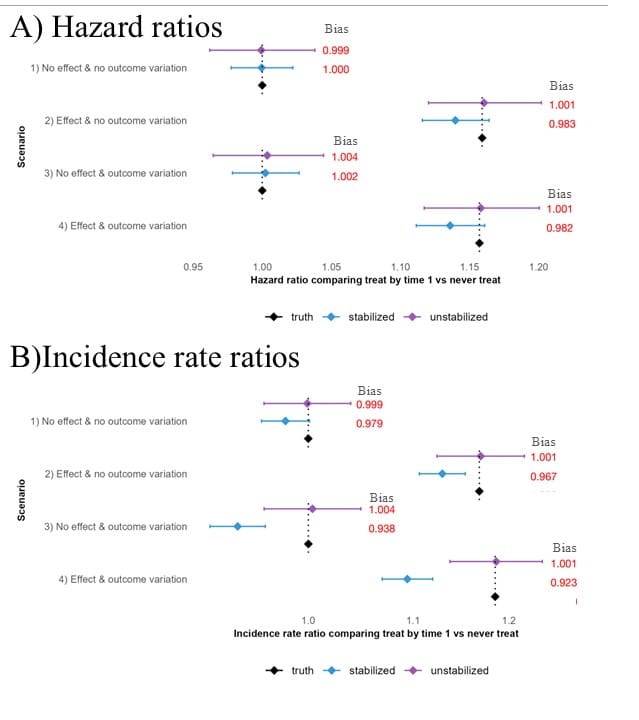Methods/Statistics
The Dangers of Stabilizing Censoring Weights Michael Webster-Clark* Michael Webster-Clark Alexander Breskin Gwen Aubrac Robert Platt
Weighting is a useful tool for constructing estimators that address confounding and selection bias. When creating inverse probability of treatment weights (IPTW) to address confounding, one very large group will result in large weights for smaller groups. “Stabilizing” IPTW, e.g., by multiplying by the marginal probabilities of treatment, centers weights around 1 and can reduce variability. When addressing selection bias via inverse probability of remaining uncensored weights (a.k.a. “IPCW”), large amounts of censoring can also create very large weights that researchers may be tempted to stabilize by dividing by marginal probabilities of remaining uncensored over time. Unfortunately, stabilizing IPCW (sIPCW) may bias incidence rate ratio (IRR) and hazard ratio (HR) estimates in some situations. This occurs because sIPCW “down-weights” the influence of later segments of person-time compared to what would be observed if the entire population truly remained uncensored. To demonstrate this, we simulated studies using the clone-censor-weight design to compare a “treat with X by time 1” regimen with a “never treat with X” regimen and estimated IRRs and HRs in the presence of a variable W associated with the probability of initiating X. We examined four scenarios: 1) no effect, no association between time and the outcome conditional on W; 2) constant hazard ratio for X; 3) no effect of X with a time-varying hazard conditional on treatment and W; and 4) both potential issues. As Figure 1 shows, sIPCW always led to more precise estimates. That said, sIPCW yielded biased estimates of the HR in scenarios 2 and 4 and biased estimates of the IRR in all scenarios. Different relationships were observed for incidence rate differences and with other causal contrasts. Under specific circumstances, stabilizing IPCW when estimating IRRs and HRs can lead to increased confidence in biased estimates.

